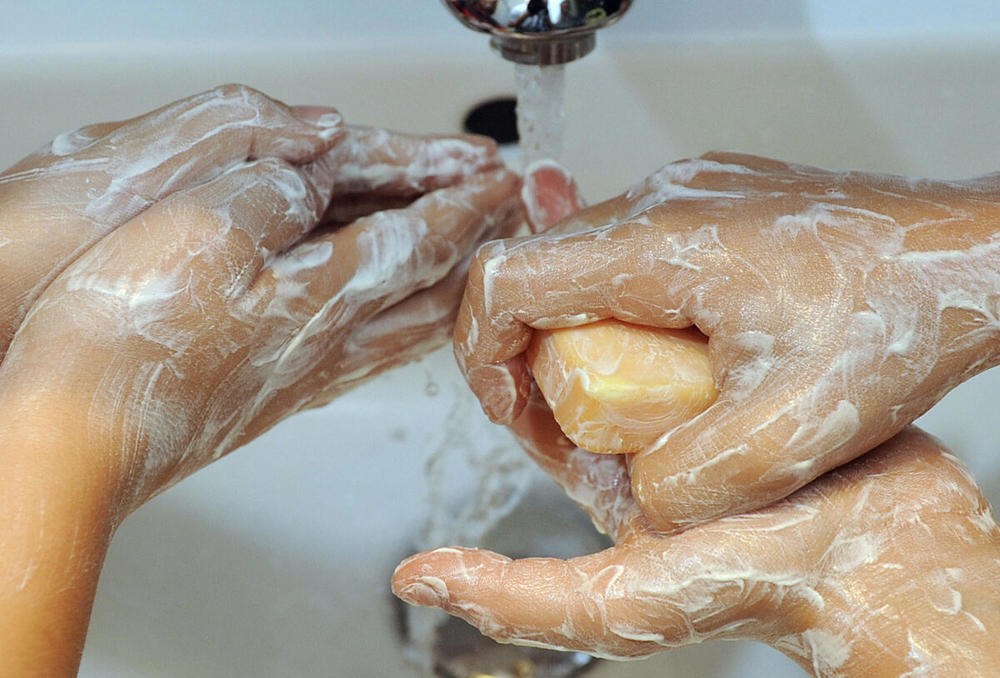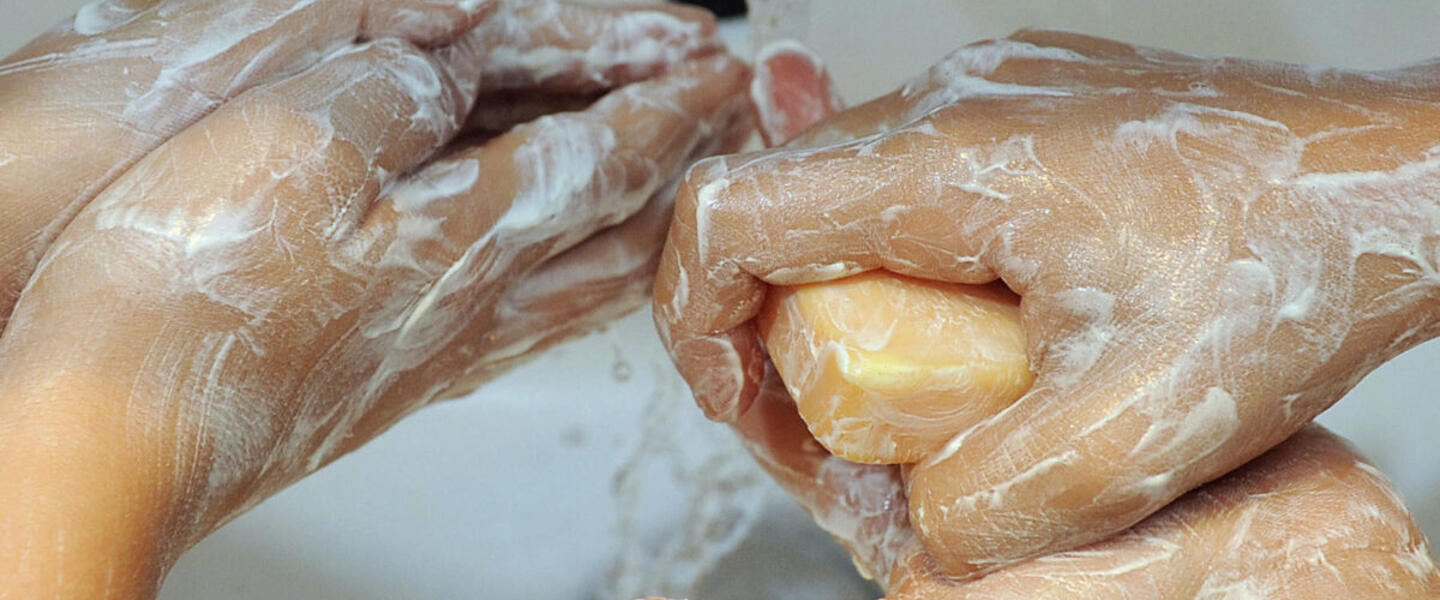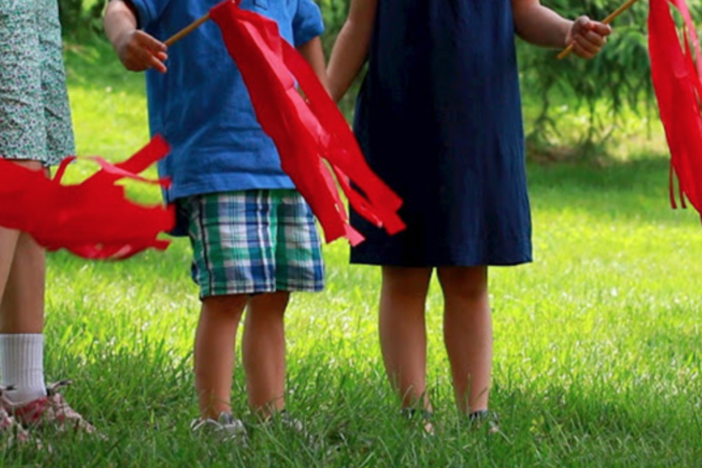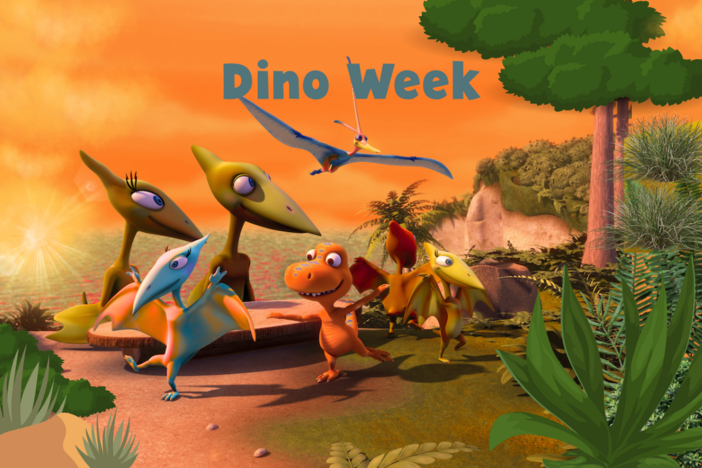
Section Branding
Header Content
What Kids And Families Need To Know About Coronavirus
Primary Content

Coronavirus. By now, many families have heard about it on TV, read about it online, talked about it at work or in school, but there are still a lot of questions surrounding this virus. With news of the coronavirus COVID-19's continued spread, sorting through the information can feel overwhelming and scary. While the coronavirus risk level remains low in Georgia, children may still have a lot of questions. Here are some answers and resources to help kids (and adults) better understand the virus.
What is coronavirus?
A newly discovered virus that can cause a disease called COVID-19. In some parts of the world, it has made lots of people sick.
What are the symptoms?
A lot of the symptoms are similar to the flu: dry, itchy cough, fever, and kinda hard to breathe. Most people who have gotten sick have had a milk case (Mild means not very strong, like mild salsa is the least spicy.) and there aren’t a lot of cases of kids getting it.
Who can get sick?
Anybody can get sick, no matter where they or their parents come from. Just because someone looks or acts differently, doesn’t mean they are more likely to get coronavirus.
What if someone gets sick?
If anyone gets sick and feels like they might have coronavirus, they can immediately call their doctors and get help.
Are there a lot of cases near me?
In the U.S. we don’t have a lot of coronavirus cases. Medical people are tracking the disease very carefully and are trying to make sure it doesn’t spread.
What can I do?
If there is anything you might be confused or worried about, ask a grown up you trust like a family member or your teacher.
Wash your hands often for at least 20 seconds, slowly sing the ABC song to make sure it's long enough.
Sneeze into your elbow so you don’t spread germs in the air.
Don’t touch your face, germs can enter your body through your eyes, nose, and mouth.
Don’t forget, there are lots of helpers working to heal and protect people. It is not your job to worry.
Coronavirus and Kids - from the CDC
Are kids more susceptible?
No, there is no evidence that children are more susceptible. In fact, most confirmed cases of COVID-19 reported from China have occurred in adults.
Do the symptoms differ in children?
Limited reports of children with COVID-19 in China have described cold-like symptoms, such as fever, runny nose, and cough. Gastrointestinal symptoms (vomiting and diarrhea) have been reported in at least one child with COVID-19. These limited reports suggest that children with confirmed COVID-19 have generally presented with mild symptoms, and though severe complications (e.g., acute respiratory distress syndrome, septic shock) have been reported, they appear to be uncommon.
Are there any children’s treatments available?
There are currently no antiviral drugs recommended or licensed by the U.S. Food and Drug Administration for COVID-19.
Coronavirus and Pregnancy - from the CDC
Are pregnant women more susceptible?
We do not have information from published scientific reports about susceptibility of pregnant women to COVID-19. Pregnant women experience immunologic and physiologic changes which might make them more susceptible to viral respiratory infections, including COVID-19.
Does having coronavirus while pregnant cause adverse pregnancy outcomes?
We do not have information on adverse pregnancy outcomes in pregnant women with COVID-19. Pregnancy loss, including miscarriage and stillbirth, has been observed in cases of infection with other related coronaviruses [SARS-CoV and MERS-CoV] during pregnancy. High fevers during the first trimester of pregnancy can increase the risk of certain birth defects.
Can a pregnant women with coronavirus pass the virus on to a fetus or newborn?
The virus that causes COVID-19 is thought to spread mainly by close contact with an infected person through respiratory droplets. Whether a pregnant woman with COVID-19 can transmit the virus that causes COVID-19 to her fetus or neonate by other routes of vertical transmission (before, during, or after delivery) is still unknown.
Can coronavirus be transmitted through breast milk?
In a limited case series reported to date, no evidence of virus has been found in the breast milk of women with COVID-19.
Resources for Kids
1. Susie’s Song "The Journey of the Germ" | Sid the Science Kid
How germs travel from person to person in a catchy country song
2. Staying Healthy | Sesame Street in Communities
Routines for kids are key to keeping healthy.
3. Germs Germs Go Away | Daniel Tiger's Neighborhood
Help kids exercise their imaginations and learn to stay healthy with Daniel Tiger. Daniel imagines that he can make all of the germs on his hands go away.
4. Going to the Doctor's Office with Daniel Tiger & Mister Rogers
Through these episodes, clips, activities and articles, help children gain a much more thorough understanding of what a doctor’s visit entails.
5. Get Well | Clifford the Big Red Dog (starting at the 12:00 mark)
What’s Clifford to do when Emily Elizabeth is sick and can’t come out to play?
6. H is for Handwashing | Sesame Street in Communities
Raya and Elmo travel around the world to learn how people around the world clean their hands
7. Comfy Cozy Nest | Sesame Street in Communities Nest
Big Bird’s struggling after a confusing and scary thing happened. Alan helps him cope and recognize his feelings.
8. ABC Scrub With Me! | Super Why!
This fun activity helps kids visualize germs while practicing their alphabet skills.
9. Coronavirus for Kids Comic | NPR's Goats and Soda
10. How Families Can Stay Healthy During the COVID-19 Outbreak
Resources for Parents and Educators
It can be hard to know what to say to children when public tragedies, natural disasters, and upsetting events occur. ARTHUR has resources, activities, and videos to help you and your child cope and build resilience.
2. How to Coach Kids Through Big Emotions | PBS Parents
Young children can have big feelings, but not yet know how to handle them. Parents and caregivers can learn how to use coaching as a simple tool for responding to a child’s upset to build their emotional competence.
3. Talking to Teens and Tweens About Coronavirus | New York Times
Experts offer advice on how parents can help adolescents get the facts straight and be prepared.
4. Coronavirus student guide | PBS NewsHour
Virus explainer and news updates.
5. Coronavirus: Multilingual Resources for Schools
Resources that include multilingual fact sheets and infographics.
6. Putting Together Your Digital Learning Contingency Plans? GPB Education Can Help!
GPB Education provides free access to over 300,000 standards-aligned digital learning resources for all grades and subject areas including streaming video, instructional strategies, virtual field trips, teacher resources, and complete lesson plans through our partnerships with Discovery Education and PBS LearningMedia.
Stay up-to-date on the latest information on the coronavirus and its impact in Georgia at gpb.org/coronavirus.






